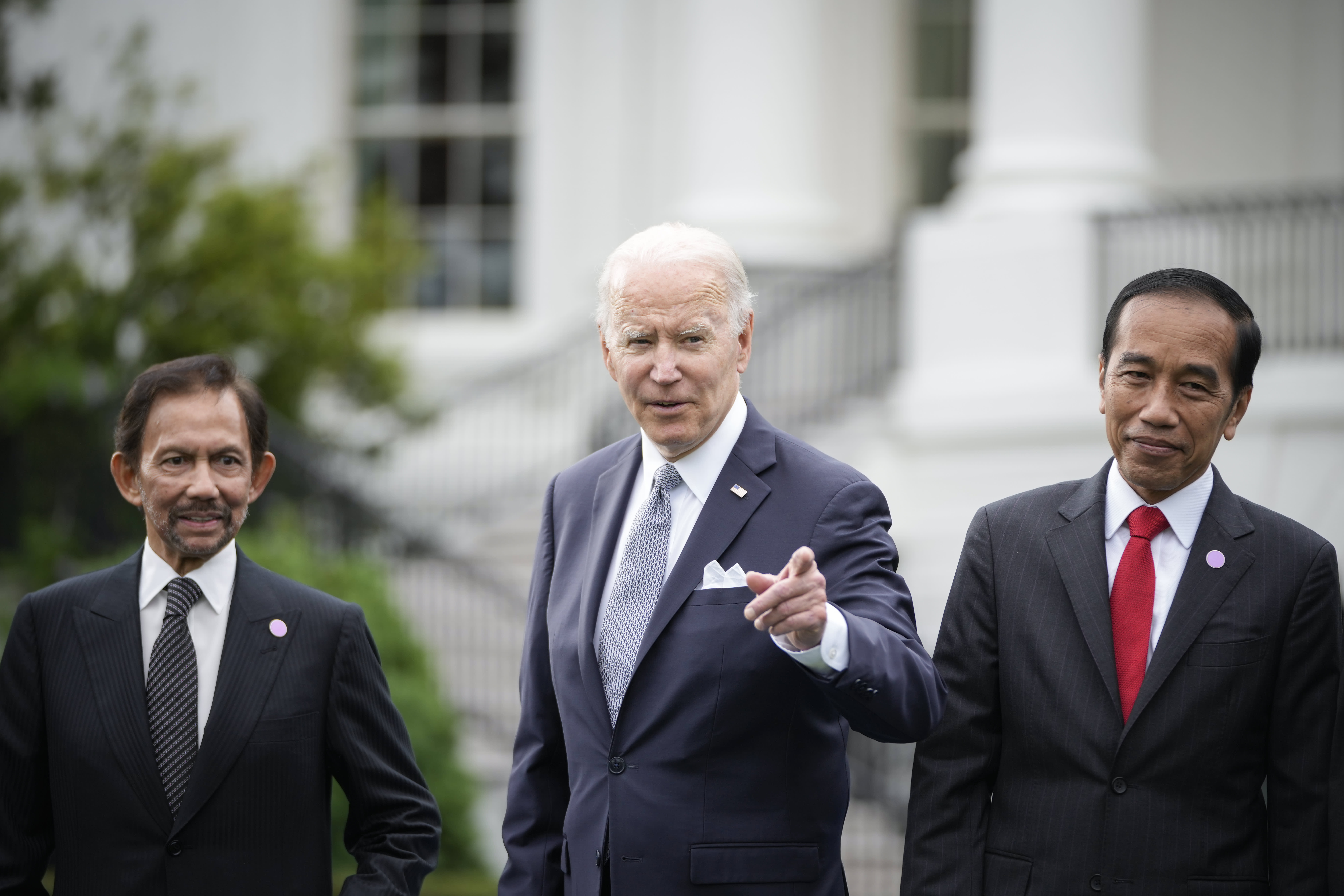
Indonesia’s president says the war in Ukraine must end as it’s driving up food and energy prices and putting developing nations like Indonesia at risk.
“The most important thing that I’m concerned with is the food price. So, we want the war in Ukraine to be stopped, resolved with negotiation so that we can concentrate [on] the economy,” President Joko Widodo told CNBC in an exclusive interview in Serang city in Banten province on Friday.
“If not, it will never be over, this is dangerous for countries, particularly, developing countries.”
Jokowi, as he’s popularly referred to back home, said the war should be resolved through negotiation and dialogue.
The Indonesian leader is attending the meeting of the Group of 7 advanced economies at the invitation of host country Germany from June 26-28. Russian news agency Tass reported last week that Jokowi will be meeting President Vladimir Putin on June 30.
“After G-7, I will visit several countries that are related [to the] food issue,” he told told CNBC’s Martin Soong. Jokowi declined to confirm if he was visiting Russia or Ukraine, which are among the world’s largest producers and exporters of food grain.
There’s a problem here and the problem is war. In G-20, we also need to invite Ukraine so that we can resolve the problem.Joko WidodoPresident of Indonesia
As chair of the Group of 20 major economies this year, Indonesia will be hosting the Heads of State and Government Summit in Bali this November. Despite calls to remove Russia from the G-20, Indonesia has invited Putin to the leaders’ summit. He has also invited Ukrainian President Volodymyr Zelenskyy.
Russia is a member of the grouping but Ukraine is not. Widodo underlined the reasoning behind his decision to invite Zelenskyy to Bali.
“There’s a problem here and the problem is war. In G-20, we also need to invite Ukraine so that we can resolve the problem,” he said.
In April, the Indonesian leader reportedly turned down Zelenskyy’s request for weapons, offering humanitarian aid instead. Indonesia has said Russia’s invasion of Ukraine is “unacceptable” but did not call out Moscow as the aggressor.
Supply chain disruptions due to the war have caused a surge in food prices worldwide. The UN’s World Food Programme has warned that those facing severe food insecurity in the world could jump to 323 million this year — up from 276 million currently — as a result of the war in Ukraine.
Wheat prices have soared since the war started, and has disrupted farming and blocked grain exports from Ukraine.
Russia is the world’s top wheat exporter. Together with Ukraine, both account for roughly 29% of the global wheat export market. Wheat prices are higher by more than 50% compared to a year ago.
U.S.-China rivalry
The U.S. and China are engaged in a tussle for dominance in Southeast Asia, with the U.S. calling the Indo-Pacific region the “heart of American grand strategy” and China asserting territorial claims over almost all of the South China Sea.
Asked about whether Indonesia was caught in the geopolitical tussle between the U.S. and China, Jokowi insisted his country was “close friends” with both.
The Indonesian president went on to say that Indonesia’s trading relations with both countries remained strong, and that the U.S. and China are both strategic partners to Southeast Asia’s largest economy.
We want this region to be peaceful so that we can build our country and have better economic growth. Rivalry, let alone war, will not be beneficial for any country.Joko WidodoPresident of Indonesia
U.S. bilateral goods trade with Indonesia amounted to more than $37 billion in 2021, while bilateral trade in services were at an estimated $2.4 billion in 2020, according to the State Department.
China is Indonesia’s largest trading partner, with trade estimated at $124.34 billion in 2021, according to Chinese customs data reported by the Indonesia’s embassy in China.
On whether the Quad strategic alliance or the AUKUS nuclear and security deal that Australia signed with the UK and the U.S. last year risks angering China, Jokowi said: “We don’t want our region to become the platform for rivalry [between] big countries.”
“We want this region to be peaceful so that we can build our country and have better economic growth. Rivalry, let alone war, will not be beneficial for any country.”
Relations with Australia
Following Australia’s decision to acquire nuclear-powered submarines under the AUKUS deal, Indonesia said it was “deeply concerned” about the “continuing arms race and power projection in the region.”
Pressed on whether Indonesia’s relationship with Australia soured as a result of AUKUS, Jokowi said: “Most importantly, we want Indonesia and Australia to have [a] better relationship in the future, in investment, in trade, and others, we want it to be better.”
He expressed hope that relations with Canberra could improve under the leadership of new Prime Minister Anthony Albanese.
“Both of us want our relationship to be better, closer and more concrete in investment and trade. Because now we already have Indonesia Australia CEPA, so this is our common goal, to be open so that goods from Australia can enter Indonesia, goods from Indonesia can enter Australia,” the president said.
“I think it’s a very good relationship.”
— CNBC’s Weizhen Tan contributed to this report.
Source: CNBC
